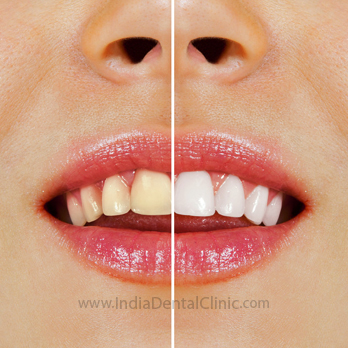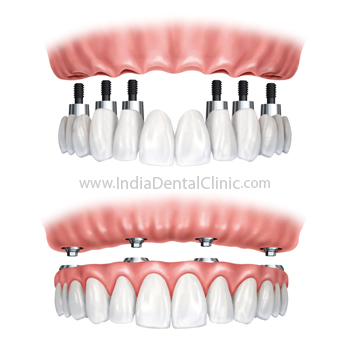Anesthesia
More On Oral & Maxillofacial Surgery
About OMF SurgeryCleft Lip & Palate
Cosmetic Jaw Surgery
TMJ-TMD Treatment
Orthognathic Surgery
Wisdom Teeth
Oral Cancer
Dental Treatment in India under Anesthesia
An overview by India Dental Clinic and listing information of anesthesiologist at dental treatment centers in India and maxillofacial dental surgery hospitals performing dental surgery in India necessitating putting the patients under sedation. Affordable cost of anesthesia in dental surgery in India encourages patients to go in for dental treatments under sedation – LA or GA. Anesthesia is administered by skilled professionals. Among others, Oral & Maxillofacial Surgeons are one such professional who receive this as compulsory training during their surgical specialties studies. They are taught the skills to safely administer anesthesia to patients. This includes IV sedation, general anesthesia, and airway management and intubations techniques. This also includes complete training in Advanced Cardiac Life Support. It is the utmost goal at any India dental centers to make your surgical experience as pleasant and stress free as possible while maintaining the highest levels of safety. All this, however, starts with knowing your medical history and your level of anxiety during the initial consultation.
No anesthesia – First of all this could be a definite possibility. In the event a patient comes in for much new decay, since a better system of cavity preparation that is much gentler than a traditional drill is explored. With no anesthesia, there is no problem with aftereffects, but occasionally discomfort during the procedure can be anticipated.
Depending on the nature of procedures, the use of general anesthesia or IV sedation is decided; whereas, others like root canals or veneers or crowns are best accomplished under local anesthesia. The choice of anesthesia is always a personal decision and should be made only after an informative consultation with the oral and maxillofacial surgeon. As part of your initial consultation, instructions will also be given how best to prepare for surgery, like: wearing loose, comfortable clothing, not having anything to eat or drink for 6–8 hours prior to surgery, taking all of your regular medications, bringing an escort with you and making arrangements for your recovery at home.
Wearing comfortable surgical suite facilitates the nurse or dental assistant to connect you to a number of important devices/monitors. These devices are typically a blood pressure cuff, an EKG (electrocardiogram) and a pulse oximeter (a device that painlessly measures both your pulse rate and the amount of oxygen in your blood). Your doctor/anesthesiologist is always on-call and he can also answer any emergency questions you may have in regards to your care following your surgery.
FAQ’s and What You Should Know about Anesthesia
What is General Anesthesia?
Most certainly all of us are familiar with hospital anesthesia under complex setting of tubes and ventilators. It is one of the familiar scenes in the surgery associated with the removal of an appendix or gallbladder. The complete relaxation of the musculature and blocking of conscious pain by rendering the patients unconscious allows surgeons to perform very invasive abdominal surgery.
What to Expect In-Office IV General Anesthesia versus Hospital General Anesthesia?
The most common feature is that the patient remains unaware (asleep) during the ongoing surgical procedure. Both types of anesthesia (intravenous and general) allow for elimination of pain and anxiety. The difference being that office intravenous general anesthesia is far simpler than hospital general anesthesia. A ventilator and complete muscle relaxation are unnecessary and undesirable for office oral surgical procedures.
What is IV (Intravenous) Sedation?
Firstly, in most people, IV sedation induces a state of deep relaxation and a feeling of not being bothered by what's going on. This technique uses similar medications as IV general anesthesia but the patient is not "ASLEEP" but will appear as if you were "asleep" during the procedure. Secondly, the drugs used for IV sedation can produce either partial or full memory loss (amnesia) for the period of time when the drug first kicks in until it wears off. Sedated patients are more aware of their immediate surroundings but are in a relaxed mood at India dental clinics. As a result, time will appear to pass very quickly and you will not recall much, or perhaps even nothing at all, of what happened.
What is Local Anesthesia?
The use of local anesthesia involves administration of a "Novocain" shot which numbs or freezes a small area so surgery can be performed without altering consciousness. This kind has a long history of safety and effectiveness. Using local anesthesia only, the patient is completely alert and fully aware of his or her surroundings. This anesthetic may be administered as a block, which affects the entire area and may numb the tongue and lip as well as the tooth, or interligmentally, which numbs only the area around the tooth to be worked on. Local anesthesia does not decrease the patient's level of anxiety towards the surgical procedure.
What are the Conditions when Local Anesthesia doesn’t work during Oral Surgical Procedures?
There are times or conditions when it does not work. The local anesthetic works well when the tissue pH is neutral or slightly alkaline. Only noninfected tissue or normal tissue pH is slightly alkaline. The presence of acidic pH does not allow for optimal effectiveness of the local anesthetic. However, more often many patients whom oral surgeons need to treat have infections which cause the tissue pH around the infected tooth to become acidic which results in the patient experiencing pain during the extraction. IV office general anesthesia allows the removal of infected teeth without causing distress and pain to the patient because tissue pH is not a factor in its effectiveness. Finally, local anesthesia doesn't treat the anxiety many patients have associated with dental surgical procedures. IV anesthetics effectively treat dental anxiety and allow for a safer and more comfortable environment for the patient to undergo surgery.
What Specific Requirements to Follow for Anesthesia?
The recommended specific requirements to follow for anesthesia include no food or liquids for 6 to 8 hours. However, each case is evaluated individually. A patient, who has taken a fatty meal like Bacon and eggs, may require 10 hours with nothing to eat or drink in order to safely perform IV office general anesthesia.
What are Exceptions to the Rule on Eating or Drinking?
The answer may be a YES. If as a patient you require antibiotic pre-medication, it should be taken with a small amount of water. Patients who are on chronic prednisone therapy may actually need to take more prednisone than they normally would. You may bring your prednisone pills with you when visiting the dental office. If you are taking regular medications for heart, blood pressure, seizure disorders, thyroid conditions, ulcers, gastric reflux, and asthma should absolutely be taken with the smallest amount of fluid which easily permits the pill to be swallowed.
Who Should Avoid Taking Regular Medications?
Taking dental surgical treatment in India, the general advisory is that the patients who take anti-hyperactivity drugs and diet medications should not take these medications on the day of surgery. In addition, the patients who have diabetes medications or are taking prednisone, anticoagulants, diet drugs, and anti-hyperactivity drugs should also speak with the doctor prior to any surgical procedure. Further, the patients who are insulin-dependent diabetics should be appointed early in the morning and will take 1/2 of their long acting insulin (NPH) and not take their regular insulin dose.
What complications to discuss at the India Dental Clinic/Office?
Lidocaine with Epinephrine
Mepivicaine without Epinephrine or Citanest
Marcaine
Soreness at Injection
Reaction to Epinephrine
Swelling
Nerve Stimulation
More dental deals in Other Cities

Professional Laser Teeth Whitening Now @ only Rs.
Special Price - 5000 (INR-Indian Rupee )Treatments Covered-
- Professional Teeth Whitening
View Details Vadodara

Dental Implants Combo Pack
Special Price - 32000 (INR-Indian Rupee )Treatments Covered-
- Dental Implant Consultation
- Dental Implants
- Implant Bridges
- Single Tooth Implant
View Details Chandigarh

Orthodontic treatments
Special Price - 15000 (INR-Indian Rupee )Treatments Covered-
- Dental Braces
View Details Kaithal

